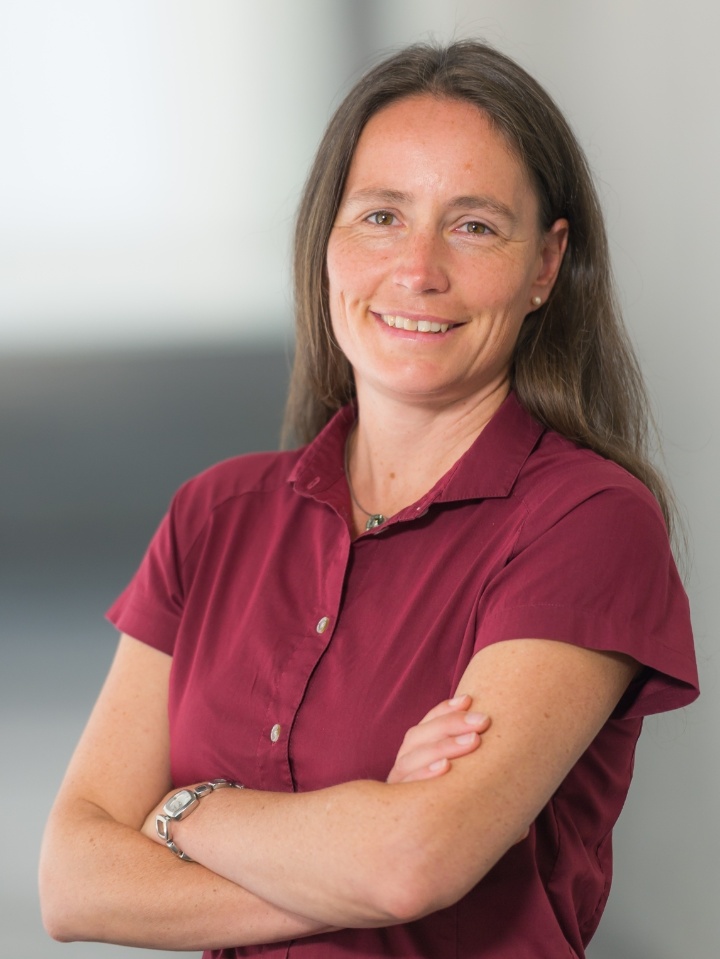Research
Prof. Dr. Radde is working on the modeling of cellular processes and intracellular regulatory mechanisms. Her research group uses statistical methods to integrate experimental data into mathematical models and to handle sparse data. Capturing heterogeneity and variability by stochastic modeling approaches and their calibration using single cell data are becoming increasingly important in this context. For a better model-based understanding of mechanisms of spatiotemporal organization in biological systems, modern simulation methods also have a key role to play. With her "70/30 professorship" (70% SimTech, 30% Faculty 8), Prof. Radde especially intensifies the cooperation of the faculty with SC SimTech and with Faculty 4 "Energy, Process and Bioengineering".
Background
Nicole Radde studied Higher Education Mathematics and Physics at the TU Darmstadt and graduated with the First State Examination and a Diploma in Physics. She then worked as a research assistant at the Institute for Applied Computer Science at the University of Cologne, where she received her doctorate in 2007 for a thesis on "Nonlinear dynamical phenomena in biochemical reaction networks" in Applied Mathematics. After a short period as a postdoc at the Institute of Medical Informatics, Statistics and Epidemiology at the University of Leipzig, she accepted a call to a junior professorship of the Cluster of Excellence EXC310 Simulation Technology at the Institute of Systems Theory and Automatic Control in 2008. After a positive evaluation, this professorship was tenured in 2015. Due to current developments, the orientation of the working group thematically fits very well to the Institute of Stochastics and Applications, so that Prof. Radde will move to the ISA on 1.4.2023. There she will lead the working group "Mathematical Modeling and Simulation of Cellular Processes".
Teaching
Nicole Radde will offer a master's lecture "Stochastic Processes and Modeling" in the summer semester 2023, as well as service lectures "Probability Theory and Statistics II" for Engineering Cybernetics and "Systems Theory in Systems Biology" for Technical Biology and interested students from other departments.



